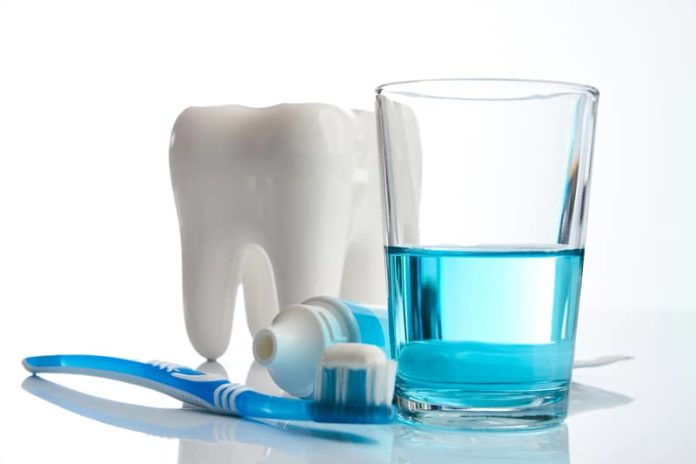Introduction
Do you suffer from any digestive issues? If so, you may be familiar with the term “FODMAPs.” FODMAPs are a type of carbohydrate that can be difficult to digest for some people. And while you may be able to avoid them in your diet, they’re actually quite common in many personal care products – including toothpaste and mouthwash. In this blog post, we’ll take a closer look at FODMAPs and their potential impact on your health. We’ll also explore some natural alternatives to traditional personal care products that can help you avoid them altogether.
What are FODMAPs?
FODMAPs are a type of carbohydrate that is found in many common foods. They are difficult for the body to digest and can cause problems for people with IBS or other digestive disorders. FODMAPs are found in wheat, rye, onions, garlic, beans, and some fruits and vegetables.
Toothpaste and mouthwash often contain small amounts of FODMAPs. While these products are not a major source of FODMAPs for most people, they can be a problem for those with IBS or other digestive disorders. If you have IBS or another digestive disorder, you may want to avoid toothpaste and mouthwash that contain FODMAPs.
What is the low FODMAP diet?
The low FODMAP diet is a diet that eliminates or limits foods that contain FODMAPs. This diet can help to reduce the symptoms of IBS and other digestive disorders. The low FODMAP diet is not a cure for these conditions, but it can help to improve your quality of life.
How do I start the low FODMAP diet?
If you think that the low FODMAP diet may help your symptoms, you should talk to your doctor or a registered dietitian. They can help you to plan a diet that is right for you.
There are many resources available to help you get started on the low FODMAP diet. Some books, websites, and apps offer information and recipes. The Monash University Low FODMAP Diet app is a good option for those who are starting the diet.
What can I eat on the low FODMAP diet?
There are many delicious foods that you can eat on the low FODMAP diet. Some examples include:
Fruits: apples (without the skin), bananas, blueberries, cantaloupe, grapes, oranges, strawberries
Vegetables: carrots, celery, green beans, potatoes, tomatoes
Protein: chicken, fish, tofu
Dairy: lactose-free milk, yogurt, and cheese
Grains: rice, quinoa, oats (gluten-free)
What foods should I avoid on the low FODMAP diet?
You should avoid foods that contain high levels of FODMAPs. Some examples of these foods include:
Fruits: apricots, figs, nectarines, peaches, pears, plums, watermelon
Vegetables: artichokes, asparagus, Brussels sprouts, cabbage, cauliflower, garlic, leeks, mushrooms, okra, onions, shallots, snow peas
Protein: processed meats (e.g., sausage), tempeh
Dairy: cow’s milk, ice cream, sherbet
What is the difference between FODMAPs and regular carbohydrates?
Most people are familiar with the term “carbohydrates” and associate it with foods like bread, pasta, rice, and potatoes. Carbohydrates are one of the three macronutrients that our bodies need for energy (the other two being fat and protein), and they are found in a variety of foods.
While all carbohydrates are made up of sugar molecules, not all carbohydrates are created equal. Some carbs are simple sugars (like glucose and fructose), while others are complex carbohydrates (like starches). And then there are FODMAPs.
FODMAPs stands for fermentable oligosaccharides, disaccharides, monosaccharides, and polyols. These are a type of carbohydrate that is poorly absorbed in the gut and can cause digestive issues like bloating, gas, and diarrhea in some people.
FODMAPs are found in a variety of foods, including many fruits, vegetables, grains, legumes, dairy products, and artificial sweeteners. While they aren’t necessarily bad for you (in fact, they provide important prebiotic benefits), if you have digestive issues they can be problematic.
So what’s the difference between regular carbohydrates and FODMAPs? It comes down to how they’re absorbed in the gut. Regular carbohydrates are broken down into glucose and absorbed through the walls of the small intestine into the bloodstream. FODMAPs Are fermented
What FODMAPs appear in toothpaste and mouthwash?
FODMAPs are found in a variety of common food items, including toothpaste and mouthwash, this toothpaste ingredients that cause allergies. While the amount of FODMAPs in these products is typically low, some people with sensitive stomachs may experience discomfort after using them.
If you have a sensitivity to FODMAPs, you may want to avoid toothpaste and mouthwash that contain them. Some brands offer FODMAP-free versions of their products. Alternatively, you can make your own toothpaste and mouthwash at home using ingredients that don’t contain FODMAPs.
Are FODMAPs in toothpaste and mouthwash a problem for people with IBS?
There is currently no research to support the claim that FODMAPs in toothpaste and mouthwash are a problem for people with IBS. However, some individuals may be sensitive to certain ingredients in these products, such as sorbitol or xylitol. If you are concerned that you may be sensitive to FODMAPs in toothpaste or mouthwash, we recommend speaking with your doctor or a registered dietitian who can provide guidance on which products to use.
What is the difference between FODMAPs and IBS?
FODMAPs are a group of poorly absorbed carbohydrates that can trigger symptoms in people with irritable bowel syndrome (IBS). While IBS is a disorder characterized by abdominal pain and changes in bowel habits, not all people with IBS will have trouble digesting FODMAPs. In fact, many people with IBS find that following a low-FODMAP diet helps to relieve their symptoms.
How do FODMAPs trigger symptoms?
FODMAPs are a type of carbohydrate that is found in many common foods. When these carbohydrates are not properly digested, they can cause a range of symptoms including bloating, gas, abdominal pain, and diarrhea.
There are many different types of FODMAPs, but the most common ones are fructose, lactose, fructans, and galactans. Many people with digestive issues can tolerate small amounts of FODMAPs without any problems. However, for some people, even small amounts of FODMAPs can trigger symptoms. In any case if your children have intolerances, tell your dentist about it so they can help you.
There are a few theories about how FODMAPs trigger symptoms. One theory is that when FODMAPs are not properly digested, they pull water into the intestine which can lead to diarrhea. Another theory is that FODMAPs ferment in the intestine which produces excess gas and bloating.
The best way to figure out if FODMAPs are triggering your symptoms is to work with a registered dietitian or other healthcare professional who is experienced in the low-FODMAP diet.
How can people with IBS avoid FODMAPs?
There are a few different ways that people with IBS can avoid FODMAPs. The first is to simply avoid foods that are high in FODMAPs. This includes many common foods like wheat, rye, barley, oats, dairy, beans, lentils, and some fruits and vegetables.
Another way to avoid FODMAPs is to take a supplement that contains them. This can be helpful for people who can’t completely avoid FODMAPs in their diet.
Finally, there are some toothpastes and mouthwashes that are specifically designed for people with IBS. These products don’t contain any of the ingredients that can trigger IBS symptoms.
Conclusion
There is still much research to be done on the effects of FODMAPs in toothpaste and mouthwash, but it is clear that they can cause problems for some people. If you are sensitive to FODMAPs, it is best to avoid products that contain them. There are plenty of other options available that will still keep your teeth and gums healthy without causing any digestive issues. Do some research and find a product that works for you so that you can enjoy good oral health without any digestive distress.










